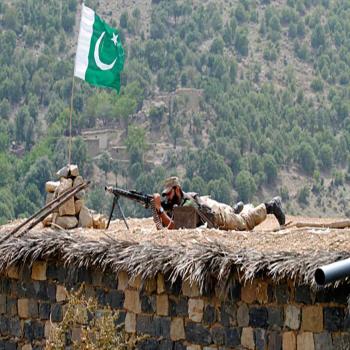In a powerful response to India’s overnight missile, drone, and air strikes, Pakistan’s National Security Committee (NSC) convened an emergency meeting on Wednesday at the Prime Minister’s House, authorizing the armed forces to respond with “full force.”
Chaired by Prime Minister Shehbaz Sharif and attended by federal ministers and military leadership, the NSC declared the attacks as “unprovoked and illegal aggression” and emphasized Pakistan’s right to self-defence under Article 51 of the UN Charter.
The meeting came in the wake of deadly Indian strikes on civilian areas across Pakistan and Azad Jammu and Kashmir, which reportedly killed 26 innocent civilians, including women and children. In its immediate retaliation, Pakistan downed five Indian warplanes, including three Rafale jets, and destroyed several military posts, including a brigade headquarters.
“Pakistan reserves the right to respond in time, place, and manner of its choosing,” the NSC stated, vowing that the country's sovereignty would never be compromised.
The committee called on the international community to take urgent notice of India’s aggression, warning that the rapidly escalating situation now threatens the stability of the entire South Asian region.
Information Minister Attaullah Tarar further intensified the rhetoric, claiming that Indian troops at the Chura complex near the Line of Control (LoC) were seen raising white flags, an act interpreted as a sign of surrender following Pakistan’s decisive counter-strikes.
Adding to the urgency, military officials informed the NSC that India had also attempted to target the Neelum–Jhelum Hydropower Project, a vital civilian infrastructure, in blatant violation of international norms.
“The enemy mistook our desire for peace as weakness,” a senior NSC member remarked. “One strike will be met with two.”
Prime Minister Shehbaz Sharif is expected to address the nation at 3PM today, outlining Pakistan’s official stance and future course of action. A separate federal cabinet meeting is also scheduled to ratify NSC’s decisions and review the evolving security dynamics.






